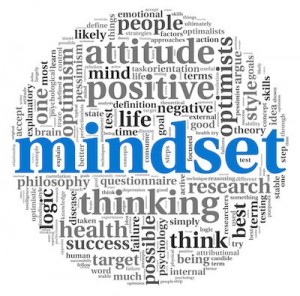There are many ways to teach mental toughness which I define as: Focused, Confident, Determined, and Resilient, especially under pressure.
I am constantly seeking new information and understandings about what makes us more likely to achieve our goals. Since the greatest issue that I see with athletes needing help is in overcoming fear, well, that’s how I’ve structured my teaching over the years.
How ever, I came across another way to teach athletes to develop a powerful mental game and it’s called: Mindset psychology.
ever, I came across another way to teach athletes to develop a powerful mental game and it’s called: Mindset psychology.
It’s a body of work that basically says that we fall into 2 camps of thinking –
Fixed mindset
Growth mindset
I discussed a growth mindset in a previous blog post. The way I describe a fixed mindset is when an athlete has a set of beliefs about yourself that you are what you are and there’s nothing you can do about it.
Another way to put it is Victim vs. Empowered mindsets. Also, I want to mention…don’t get too caught up in the term “mindset.” Just substitute the word “attitude” if that is helpful for understanding and you will have the concept just as well.
If you find yourself thinking in a Fixed mindset, you typically think that bad things are being done TO YOU, and you are a helpless victim.
In contrast, a person with an empowered (growth) mindset will relate events in the world to somehow SERVING YOU.
What if, as an athlete, you looked at every performance in that light and through that prism? This is the heart of the science of mindset psychology.
The simple way to do that is to always ask yourself after every difficult event in your sport (and entire life) this simple question:
How can this serve me?
We can look at some of the greatest sports comebacks in the world and easily see the mindset the athlete adopted from it.
Michael Jordan getting cut from the H.S. basketball team. (You know how that turned out)
Golf’s Greg Norman was named by ESPN as the worst choke artist of all time having blown big leads in major tournaments. Today, he is a multi-zillionaire.
Adrian Peterson, of the NFL, one year after having ACL surgery wins the league’s Most Valuable Player and calls his injury “A blessing in disguise.”
Or how about Monica Seles who, at the top of her game and the world’s #1 Tennis player, was stabbed by a deranged fan and then came back and said “It made her stronger.”
We may not always be able to see the lesson or the positive side of tragic or difficult events when they have just happened, that’s true. Time is your friend in helping you clear away the hurt so you can see the benefit.
The old saying: “Fake it until you make it” can really help speed that transition along.
When you have just come off the worst performance of your life or completely let down your team or coach, the first thing you want to do is to honor the disappointment and other difficult feelings you are going through. Do not fight them. They will not last forever. Those feelings are just chemical releases in the body and they will go back to where they came from.
When they do, it’s time to resolve it in your mind. You cannot go around constantly asking “Why me?” or “Why did this have to happen to me?”
You must answer the question and then get back up on the horse and ride it to eventual victory. Those who fail to do this are considered to have a “Fixed” mindset and keep themselves mired in their failure.
Start a mental practice today to eventually create that attitude that everything that happens to you in your game makes you a better athlete….especially your losses…and it will.
Craig Sigl – Mental Toughness Trainer
[CC-BY-1.0 (http://creativecommons.org/licenses/by/1.0) or Attribution], via Wikimedia Commons

